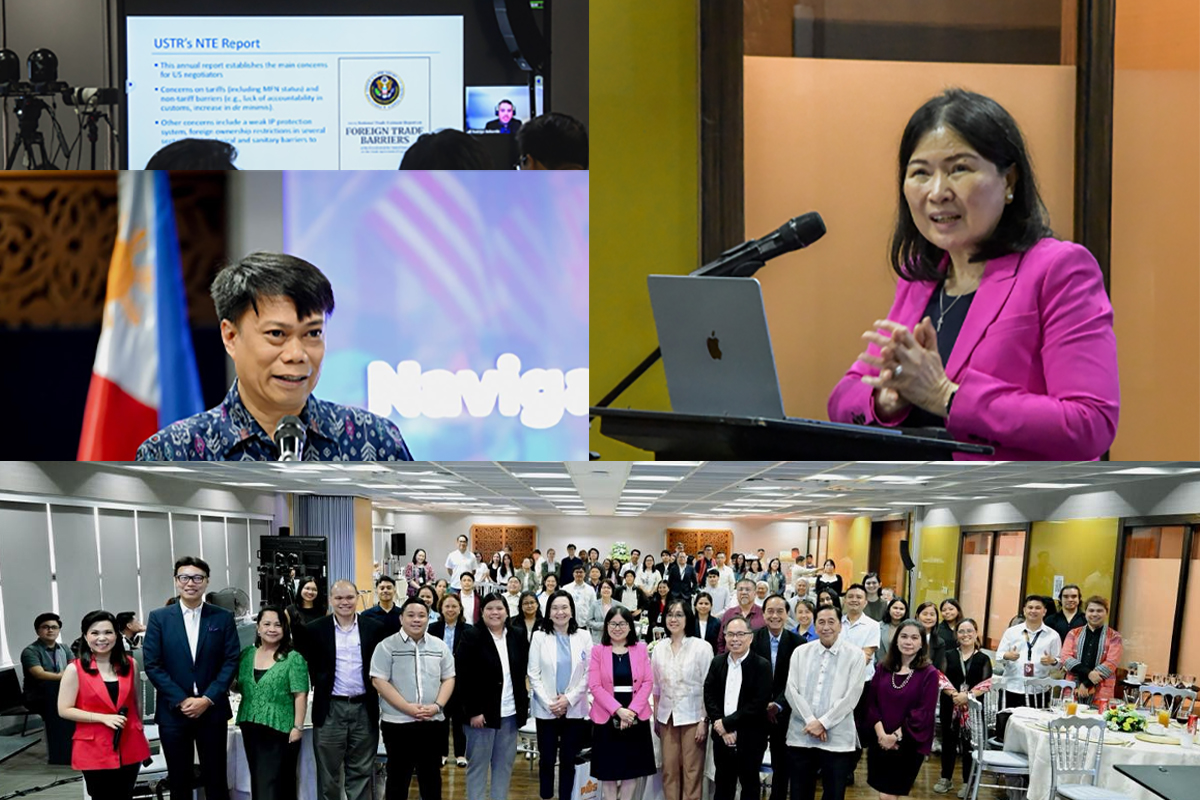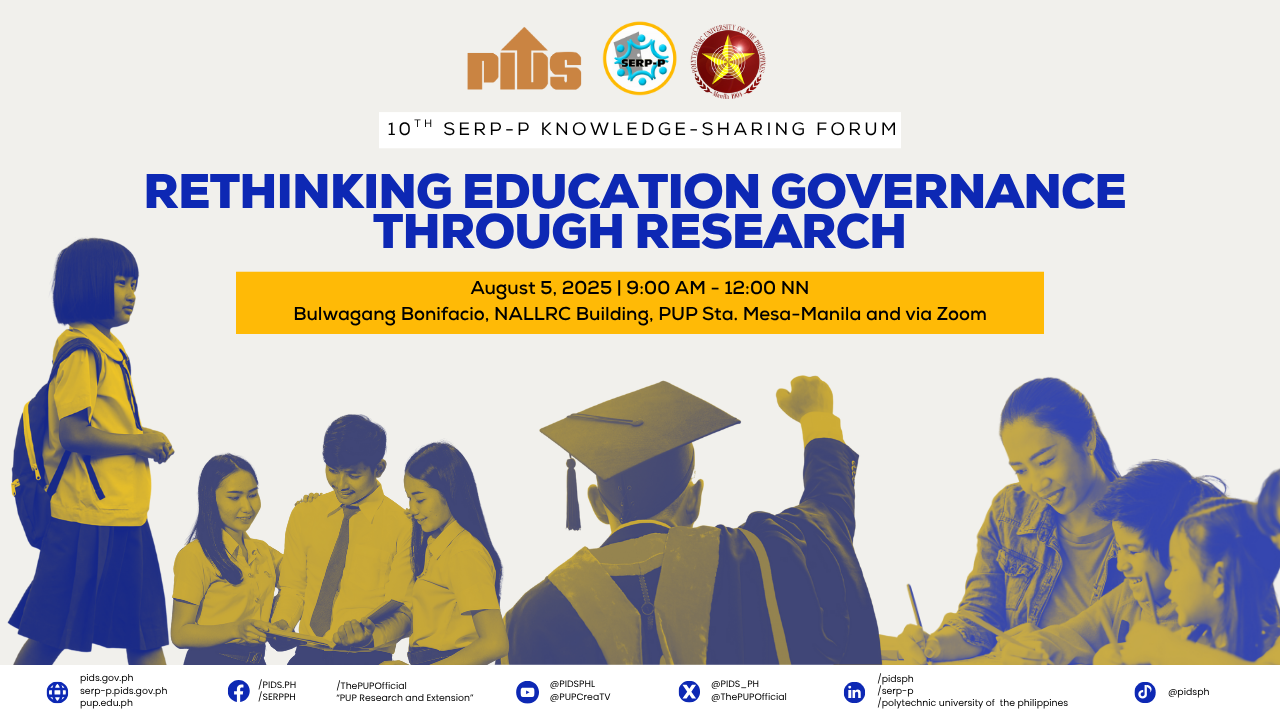Manila and Washington are now exploring a potential free-trade agreement (FTA) to deepen the economic relationship between the two countries, as discussed by President Duterte and US President Donald J. Trump in their meeting last month.
In a joint statement on the 7th US-Philippines Bilateral Strategic Dialogue, Manila and Washington had extensive discussions on the possibility of cooperating in science and technology, agriculture and fisheries, and health and environment.
On the sidelines of the 31st Association of Southeast Asian Nations (Asean) Summit and Related Summits in Manila, Duterte sought to fast-track the conclusion of a US-Philippines FTA.
They welcomed the bilateral Trade and Investment Framework Agreement [Tifa] discussions held on November 29, and look forward to more robust discussions on ways to expand free, fair and reciprocal bilateral trade, including through exploring a potential FTA,” the statement read.
Delegations from both countries also discussed and reaffirmed their commitment to deepen their collaboration in maritime security, humanitarian assistance and disaster response, and cybersecurity.
Commitments to cooperate on countering transnational drug trafficking, countering terrorism, and improving drug prevention and treatment services, as well as combating wildlife trafficking and illegal, unreported and unregulated fishing were also reaffirmed during the dialogue.
The joint statement also said the two countries discussed their “shared concerns” on the security challenges in the region and pledged to cooperate in ending North Korea’s ballistic missile and nuclear programs.
Both sides reiterated their commitment to uphold freedom of navigation and overflight and other lawful uses of the sea in the South China Sea, and stressed the importance of peacefully resolving disputes in accordance with international law, as reflected in the Law of the Sea Convention,” the statement read.
Acting Assistant Secretary of State for East Asian and Pacific Affairs Susan Thornton and Acting Assistant Secretary of Defense for Asian and Pacific Security Affairs David Helvey co-led the US delegation. Department of Foreign Affairs Undersecretary for Policy Enrique A. Manalo and Department of National Defense Undersecretary Ricardo A. David Jr. co-led the Philippine delegation.
The next Bilateral Strategic Dialogue will be held in Manila next year. The dialogue had four working groups convened to develop action plans for expanding the partnership on defense and security; economics, development, and prosperity; regional and global diplomatic engagement; and rule of law and law enforcement.
Last month Manila pushed to fasttrack the US-Philippines FTA after Trump raised concerns regarding the high tariff rates imposed on American-made cars compared to Japanese vehicles.
Presidential Spokesman Harry L. Roque Jr. told reporters that this was part of the meeting between President Duterte and President Trump which lasted for over 40 minutes.
Currently, the tariff rate imposed on Japanese automobiles is around 20 percent for vehicles with 3-liter engines and zero for those with bigger engines. Data from the United States Trade Representative (USTR) said American cars are slapped with higher tariffs.
The USTR said the Philippines applies a 30-percent tariff on passenger cars; tariffs of 20 percent to 30 percent on vehicles for the transport of goods; and tariffs of 15 percent to 20 percent on vehicles for the transport of persons, depending on vehicle weight.
It added that Manila continues to extend zero duty on the importation of capital equipment, spare parts and accessories by motor-vehicle manufacturers and other enterprises registered under the Board of Investments (BOI).
Asean countries and Japan enjoy preferential import tariffs on new vehicle imports under the Asean free-trade agreement and the Japan-Philippines Economic partnership agreement, respectively,” USTR stated in a document.
In 2006 the Philippine Institute for Development Studies researchers ,including senior fellow Erlinda M. Medalla said pursuing a United States-Philippines Free Trade Agreement will only lead to 0.1- percent increase in GDP. The study also stated that a US FTA would reduce poverty incidence, especially in National Capital Region, where industries are based. On the whole, the reduction in poverty, using all three indices, across categories, is 1.1 percent for head count, 1.3 percent for poverty gap and 1.6 percent for poverty severity.
The study stated that the FTA talks between the US and the Philippines formally began when Sen. Richard Lugar of the United States Congress presented Senate Bill 2004 on March 11, 2002. The bill authorized the American President to negotiate and conclude an FTA with the Philippines.
WTO representative
President Duterte has appointed a foreign affairs undersecretary as Manila’s permanent representative to the World Trade Organization (WTO), along with two other envoys to Mexico and Cook Islands.
The President has named Foreign Affairs Undersecretary Manuel Antonio J. Teehankee as the Philippines’s Permanent Representative to the WTO in Geneva, Switzerland. Teehankee has been tapped as undersecretary for international and economic relations by former Foreign Affairs Secretary Perfecto R. Yasay Jr.
He is also a professor of international law at the Ateneo de Manila University. He is not new to his designation as Manila’s permanent representative to the WTO, as he also held the same post from 2004 to 2011.
In the latter part of his previous stint in the WTO, Teehankee chaired the Committee on Trade and Environment from 2007 to 2011. For his diplomatic service to the country, he was bestowed the Distinguished Service Award by the Department of Foreign Affairs (DFA).
Before his tenure in the DFA, Teehankee served as justice undersecretary and official at the Office of the Government Corporate Counsel for the Philippine government. His experience in law ranges from arbitral tribunals to dispute settlement in the WTO. Aside from Teehankee, Duterte has also appointed Demetrio R. Tuason as envoy to Mexico, with concurrent jurisdiction over Belize, Costa Rica, El Salvador, Guatemala, Honduras, Nicaragua, Panama, Dominican Republic and Cuba. Tuason used to chair local firearms manufacturer Arms Corp. of the Philippines, also known as Armscor.
The President has also named Jesus S. Domingo as ambassador to Cook Islands, to go along with his concurrent jurisdiction as envoy to New Zealand. Aside from these, he also represents Manila in Fiji, Tonga and Samoa.
In a joint statement on the 7th US-Philippines Bilateral Strategic Dialogue, Manila and Washington had extensive discussions on the possibility of cooperating in science and technology, agriculture and fisheries, and health and environment.
On the sidelines of the 31st Association of Southeast Asian Nations (Asean) Summit and Related Summits in Manila, Duterte sought to fast-track the conclusion of a US-Philippines FTA.
They welcomed the bilateral Trade and Investment Framework Agreement [Tifa] discussions held on November 29, and look forward to more robust discussions on ways to expand free, fair and reciprocal bilateral trade, including through exploring a potential FTA,” the statement read.
Delegations from both countries also discussed and reaffirmed their commitment to deepen their collaboration in maritime security, humanitarian assistance and disaster response, and cybersecurity.
Commitments to cooperate on countering transnational drug trafficking, countering terrorism, and improving drug prevention and treatment services, as well as combating wildlife trafficking and illegal, unreported and unregulated fishing were also reaffirmed during the dialogue.
The joint statement also said the two countries discussed their “shared concerns” on the security challenges in the region and pledged to cooperate in ending North Korea’s ballistic missile and nuclear programs.
Both sides reiterated their commitment to uphold freedom of navigation and overflight and other lawful uses of the sea in the South China Sea, and stressed the importance of peacefully resolving disputes in accordance with international law, as reflected in the Law of the Sea Convention,” the statement read.
Acting Assistant Secretary of State for East Asian and Pacific Affairs Susan Thornton and Acting Assistant Secretary of Defense for Asian and Pacific Security Affairs David Helvey co-led the US delegation. Department of Foreign Affairs Undersecretary for Policy Enrique A. Manalo and Department of National Defense Undersecretary Ricardo A. David Jr. co-led the Philippine delegation.
The next Bilateral Strategic Dialogue will be held in Manila next year. The dialogue had four working groups convened to develop action plans for expanding the partnership on defense and security; economics, development, and prosperity; regional and global diplomatic engagement; and rule of law and law enforcement.
Last month Manila pushed to fasttrack the US-Philippines FTA after Trump raised concerns regarding the high tariff rates imposed on American-made cars compared to Japanese vehicles.
Presidential Spokesman Harry L. Roque Jr. told reporters that this was part of the meeting between President Duterte and President Trump which lasted for over 40 minutes.
Currently, the tariff rate imposed on Japanese automobiles is around 20 percent for vehicles with 3-liter engines and zero for those with bigger engines. Data from the United States Trade Representative (USTR) said American cars are slapped with higher tariffs.
The USTR said the Philippines applies a 30-percent tariff on passenger cars; tariffs of 20 percent to 30 percent on vehicles for the transport of goods; and tariffs of 15 percent to 20 percent on vehicles for the transport of persons, depending on vehicle weight.
It added that Manila continues to extend zero duty on the importation of capital equipment, spare parts and accessories by motor-vehicle manufacturers and other enterprises registered under the Board of Investments (BOI).
Asean countries and Japan enjoy preferential import tariffs on new vehicle imports under the Asean free-trade agreement and the Japan-Philippines Economic partnership agreement, respectively,” USTR stated in a document.
In 2006 the Philippine Institute for Development Studies researchers ,including senior fellow Erlinda M. Medalla said pursuing a United States-Philippines Free Trade Agreement will only lead to 0.1- percent increase in GDP. The study also stated that a US FTA would reduce poverty incidence, especially in National Capital Region, where industries are based. On the whole, the reduction in poverty, using all three indices, across categories, is 1.1 percent for head count, 1.3 percent for poverty gap and 1.6 percent for poverty severity.
The study stated that the FTA talks between the US and the Philippines formally began when Sen. Richard Lugar of the United States Congress presented Senate Bill 2004 on March 11, 2002. The bill authorized the American President to negotiate and conclude an FTA with the Philippines.
WTO representative
President Duterte has appointed a foreign affairs undersecretary as Manila’s permanent representative to the World Trade Organization (WTO), along with two other envoys to Mexico and Cook Islands.
The President has named Foreign Affairs Undersecretary Manuel Antonio J. Teehankee as the Philippines’s Permanent Representative to the WTO in Geneva, Switzerland. Teehankee has been tapped as undersecretary for international and economic relations by former Foreign Affairs Secretary Perfecto R. Yasay Jr.
He is also a professor of international law at the Ateneo de Manila University. He is not new to his designation as Manila’s permanent representative to the WTO, as he also held the same post from 2004 to 2011.
In the latter part of his previous stint in the WTO, Teehankee chaired the Committee on Trade and Environment from 2007 to 2011. For his diplomatic service to the country, he was bestowed the Distinguished Service Award by the Department of Foreign Affairs (DFA).
Before his tenure in the DFA, Teehankee served as justice undersecretary and official at the Office of the Government Corporate Counsel for the Philippine government. His experience in law ranges from arbitral tribunals to dispute settlement in the WTO. Aside from Teehankee, Duterte has also appointed Demetrio R. Tuason as envoy to Mexico, with concurrent jurisdiction over Belize, Costa Rica, El Salvador, Guatemala, Honduras, Nicaragua, Panama, Dominican Republic and Cuba. Tuason used to chair local firearms manufacturer Arms Corp. of the Philippines, also known as Armscor.
The President has also named Jesus S. Domingo as ambassador to Cook Islands, to go along with his concurrent jurisdiction as envoy to New Zealand. Aside from these, he also represents Manila in Fiji, Tonga and Samoa.












